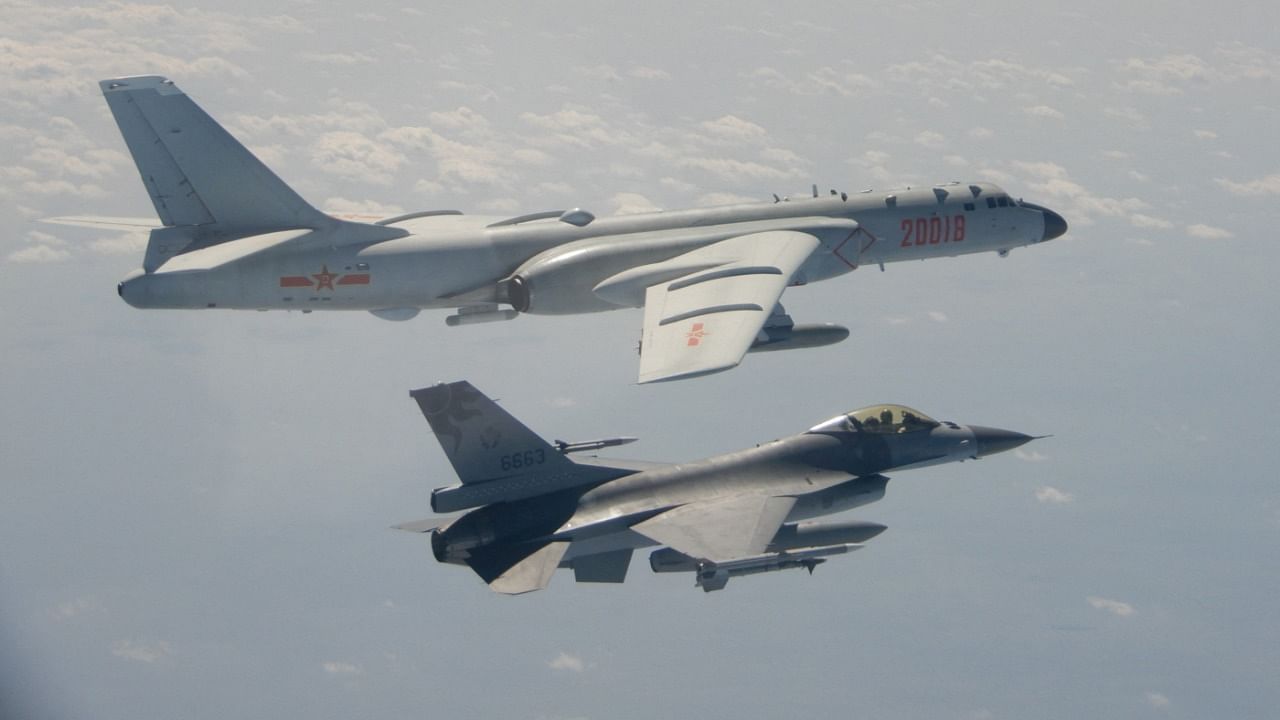
The ongoing cloud of uncertainty on whether Russia will attack Ukraine has put massive pressure on diplomatic relations worldwide. Russia has gathered a large number of troops on its border with Ukraine, while NATO [North Atlantic Treaty Organisation] and other countries watch with trepidation. The United States has warned of grave consequences for Russia if it attacks Ukraine. It has asked Americans to leave Ukraine but also suggested that a direct conflict between the US and Russia is not a possibility.
One can argue that Ukraine and Taiwan are not similar given their different diplomatic, geographic and historical narratives. What needs to be watched here is the stand adopted by the US. Will the US come to Ukraine's rescue, or will it be left to fend for itself with its own resources and destiny?
The US and Taiwan share an important diplomatic bond, the Taiwan Relations Act, signed in 1979. According to this, "The United States will work towards friendly relations between people of Taiwan and the United States and the future of Taiwan should be determined through peaceful means." The Taiwan Relations Act has been criticised by Beijing repeatedly, arguing that it interferes with China's domestic issues. However, it has been one of the important pillars by which Washington has continued to help Taipei strengthen its military and defence preparedness.
US President Joe Biden has reiterated that the US stand towards Taiwan remains unchanged. Recently, the US signed a $ 100 million deal to sell defence equipment to Taiwan, including services to the Patriot missile defence system. As expected, Taipei welcomed this, but Beijing criticised it.
In the last few years, relations between China and Taiwan have deteriorated, attributed to the reunification vision of Chinese President Xi Jinping. While China views Taiwan as a part of the mainland, Taipei under Tsai Ing-wen wants to achieve a more independent identity. It is, therefore, little surprise that Xi has been looking for ways to fulfil his aim of national rejuvenation and the Chinese dream of reunification. This stand of Beijing makes Taiwan insecure and worried about the future. China has been 'eating away' several diplomatic allies of Taiwan with its financial clout.
Some scholars argue that if Russia attacks Ukraine, it provides Beijing with a testing ground to see to what extent the US might go. It also allows China to gauge the international reaction towards such an act. It will help Xi decide whether and how he should go about military and forceful reunification with Taiwan. China has supported Russia in the United Nations on the Ukrainian issue.
During the pre-Winter Olympics meeting between Xi and Russian President Vladimir Putin, the leaders expressed their views on NATO and other exclusive security groupings, terming NATO a cold war era alliance. The two committed to their friendship, stating that the relationship between the two countries was "superior to political and military alliances of the cold war era."
Given this backdrop, Taiwan would be keenly watching the stand adopted by the US towards Ukraine. However, drawing parallels is not easy. Even if Russia were to attack Ukraine and China comes to its aid, it might not indicate a similar action by Beijing vis-à-vis Taipei.
The US and China both have a lot at stake concerning their relations with Taiwan and bilaterally. If Beijing does attack Taiwan, it may lose a lot economically and internationally. It is financially heavily intertwined with the US and Taiwan. The economic repercussions of aggression on Taiwan would be high. Even if it were to succeed militarily, the cost of the war could leave Beijing with disgruntled masses both at home and in Taiwan.
In 2020, Taiwanese exports to mainland China (including Hong Kong) were more than $150 billion. With the ongoing pandemic and the significant challenges the Chinese economy has faced, a military excursion seems far-fetched. From the nationalistic point of view, this could further strain domestic support of the Communist Party of China (CPC), a challenge that it may be unwilling to take on. The current aim should be to revive the economy than look for a military excursion.
However, the immediate gain for China by showing support towards Russia on Ukraine helps Beijing test the waters and keep Taiwan guessing.
(The writer is Assistant Professor at OP Jindal Global University)
Disclaimer: The views expressed above are the author's own. They do not necessarily reflect the views of DH
Watch the latest DH Videos here: